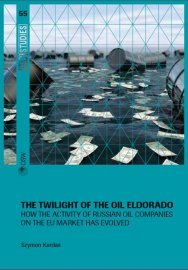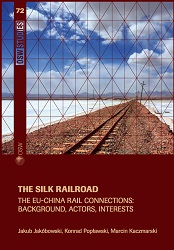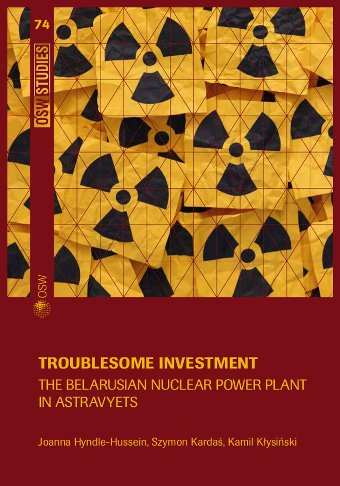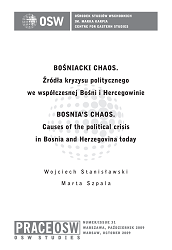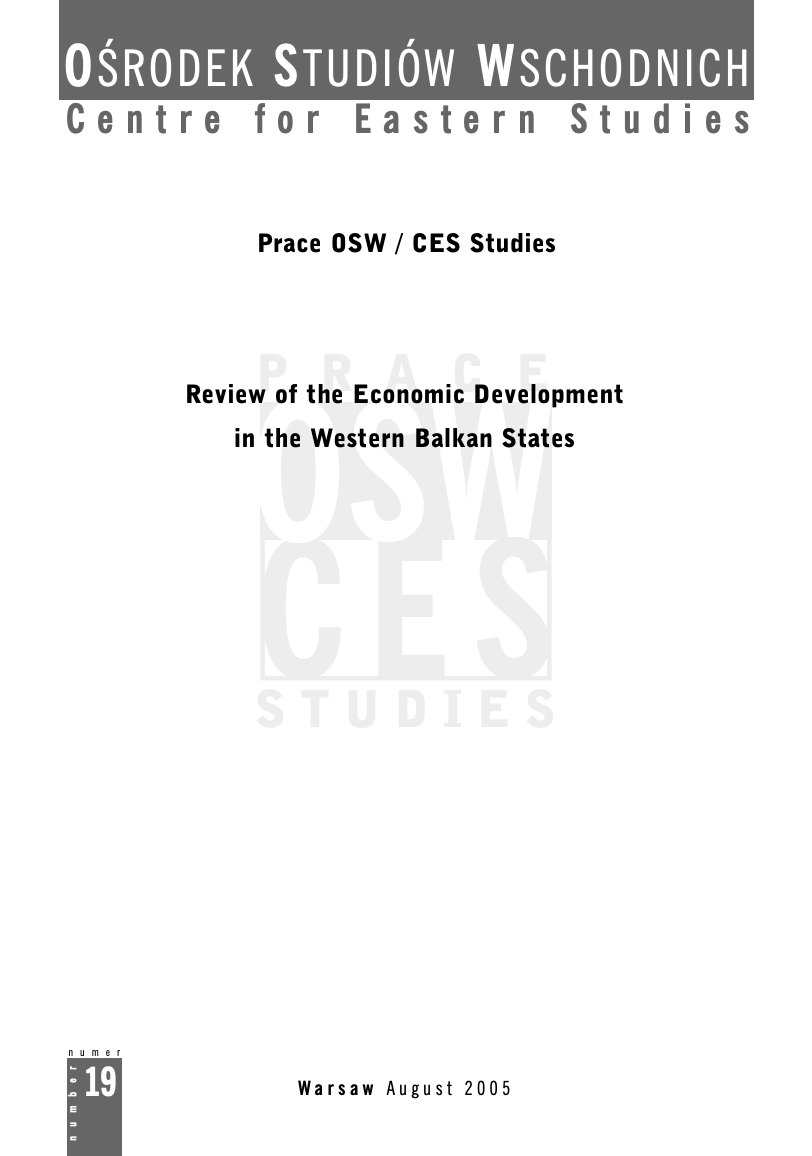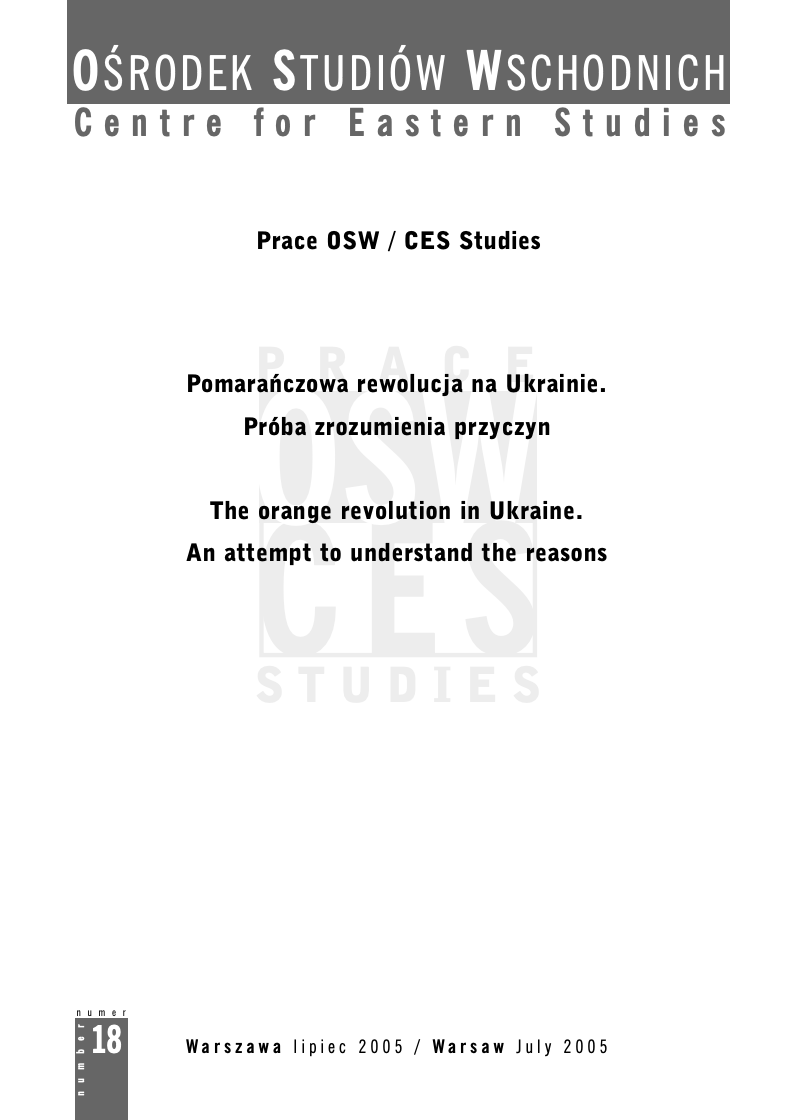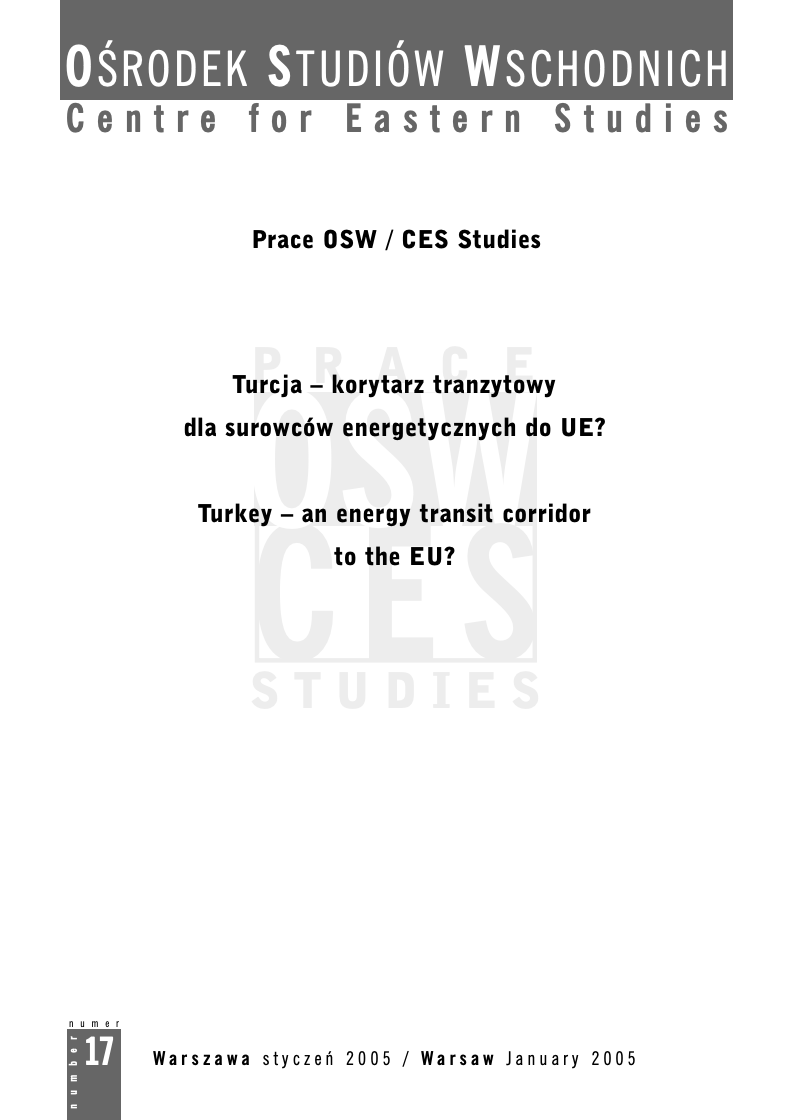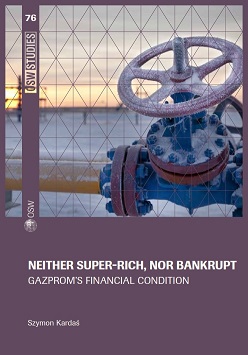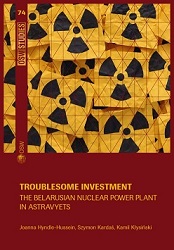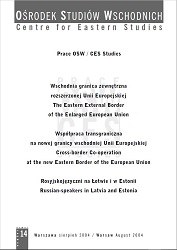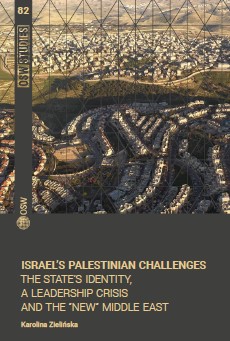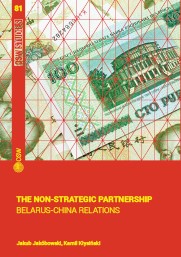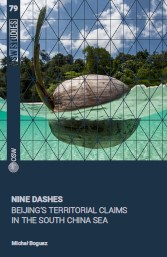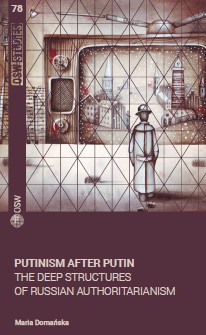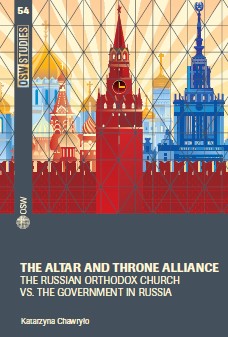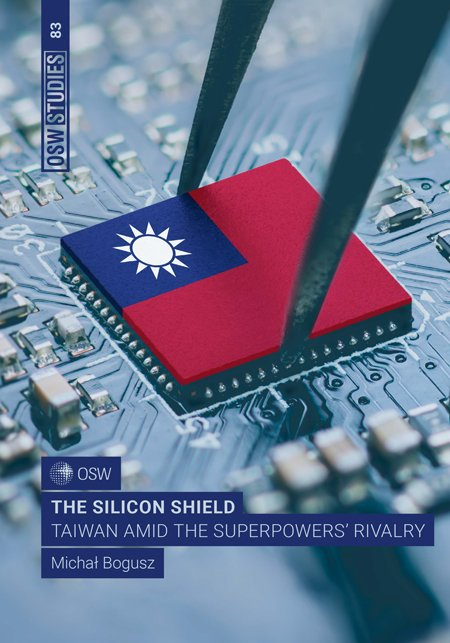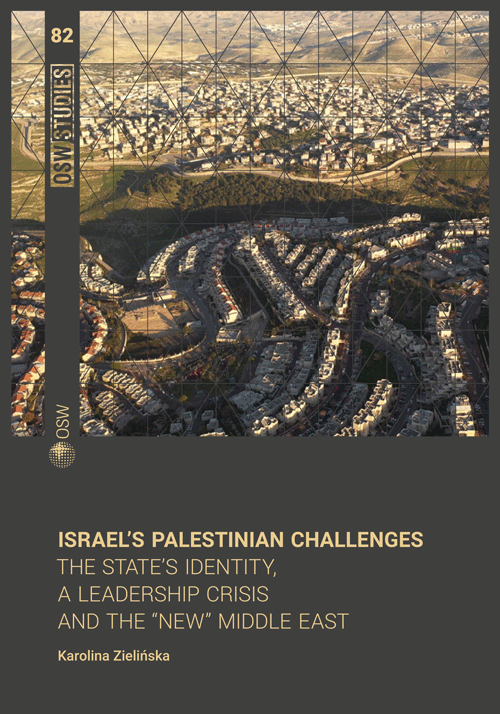The orange revolution in Ukraine. An attempt to understand the reasons
Author(s): Joanna Konieczna-Sałamatin / Language(s): English
Keywords: orange revolution; Ukraine
1. The Ukrainian society in the run-up to the 2004 presidential election was in a state which political science literature characterises as an almost "ideal" condition for an outbreak of social unrest. Growing expectations, both economic and political, seemed vain due to mounting impediments. The victory of Viktor Yanukovych was perceived by many opinion-makers as a nail in the coffin of such aspirations.2. In Ukraine, almost since the moment of regaining independence, the following two public order models, in which inherent are completely different system-related preferences of the citizens, have co-existed: the decentralised model of a "network" society, where dominate parallel mutual dependences between people who opt for a democratic political system; and the centralist model of social integration, where order is ensured via the vertical relation of power and submission. In the latter case, democracy seems dubious and preference is given to various kinds of systems having a strong central authority. Over the past ten years, the decentralised model has been slowly strengthening, and its influence has been expanding. It operates predominantly in the Western Ukraine and in Kyiv, yet it has won increasingly more areas also in the North and East of the country (except for Donbas). Viktor Yanukovych was in the common opinion a supporter of the centralist vision, and his victory in the election was perceived as an immediate threat to the already known and familiar rules of activity in parallel relations. Yanukovych was believed to be a player who would impose his own rules, without respecting the already existing ones.3. Foreign policy issues, a "pro-European" or "anti- European" approach of the authorities, hardly had any significance during the orange revolution. Its causes were purely internal. However, as the events developed, the stance taken by the international community became important for Ukrainians and could contribute to a significant growth of pro-European sentiments."Revolution" was the favourite word of most commentators in their descriptions of the events in late 2004, connected with the presidential election in Ukraine. Still, some of them - few as they were - protested against this term pointing out to many elements that proved evolutional rather than revolutionary nature of the changes taking place there. I suggest leaving this issue to future political scientists and historians, who will certainly answer the question whether that was a revolution and if it was not, how to name it1. This text is an attempt to reflect on what really happened in Ukraine in the last months of 2004, regardless of whether we call such events revolution, rebellion, social movement or anything else.Any mass social movements mainly draw attention of the mass media, yet soon they also become a subject of analysis for political scientists, sociologists and other specialists in social sciences, who try to answer the question if "this" could have been predicted? Post factum we usually state that there were very many signs of an approaching outbreak but nobody paid sufficient attention to such "harbingers". Even more so because social processes are almost never launched by only one factor.A well-known American political scientist James Davies (1962) noticed in the early 1960's that one of the factors provoking social movements is the discrepancy between social expectations & aspirations and the possibility to satisfy them. Davies initially formulated his theory, which has become classical today, in terms of socioeconomic expectations. Thereafter, he wrote that if such a discrepancy concerns political issues, its "explosive action" can be even stronger.Social expectations usually grow when the economic situation starts improving. Then expectations and hopes concerning both material and non-material issues grow; starting from the possibility to do business in an unrestricted way through such ideas as the freedom of speech. Expectations also grow when the society has managed to develop parallel ways of communication and gaining the awareness of its subjectivity, independently of the existing political system.
More...
